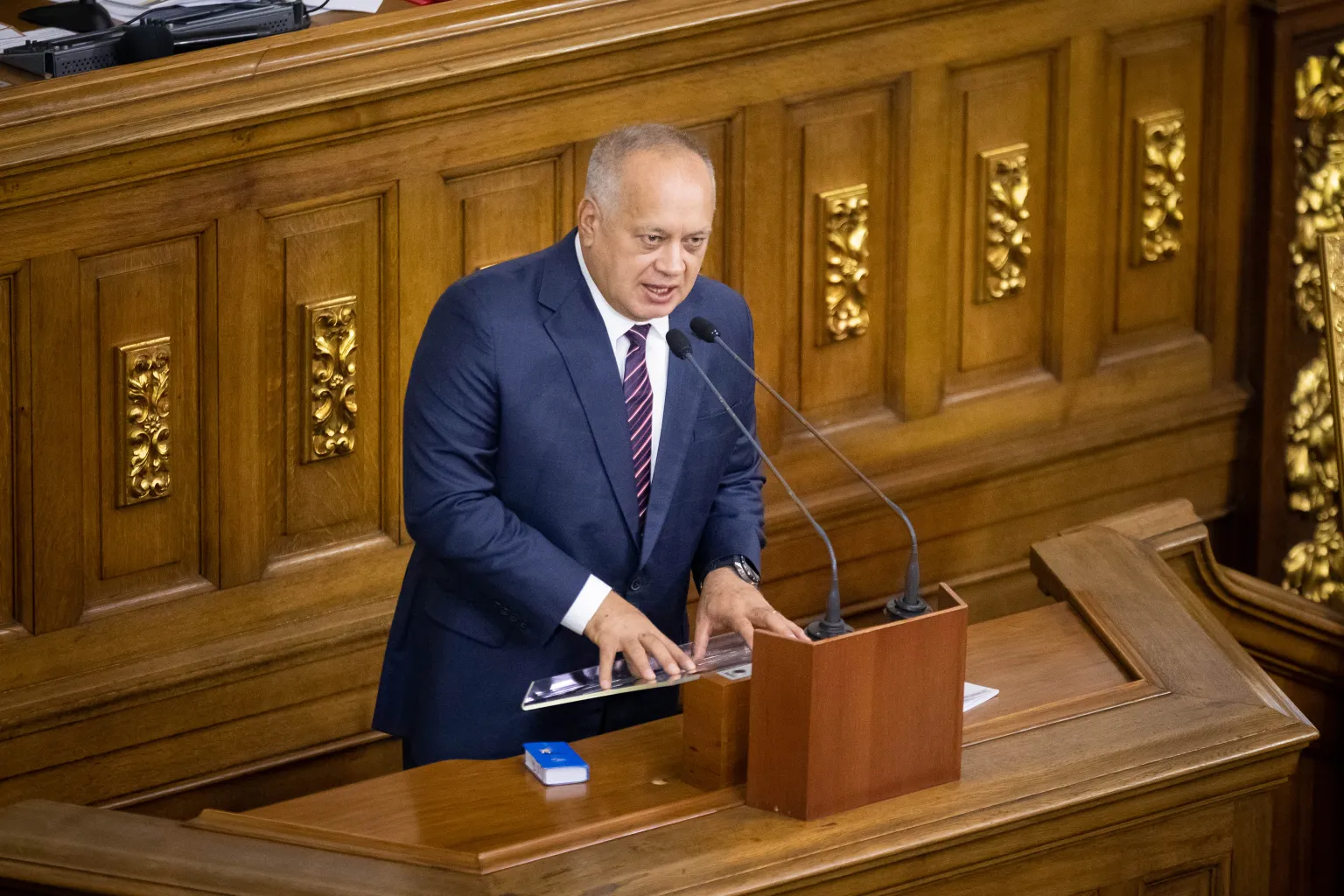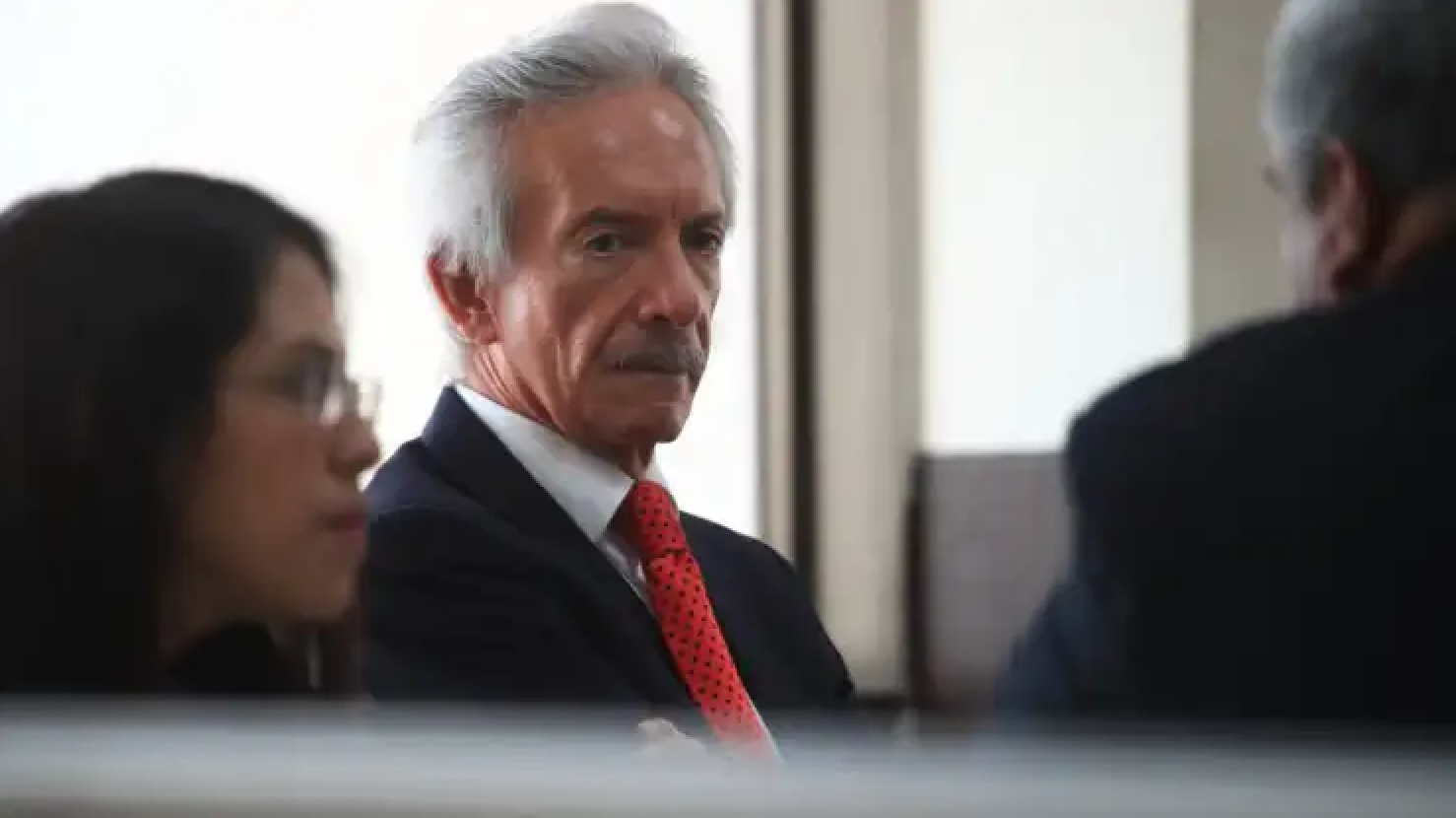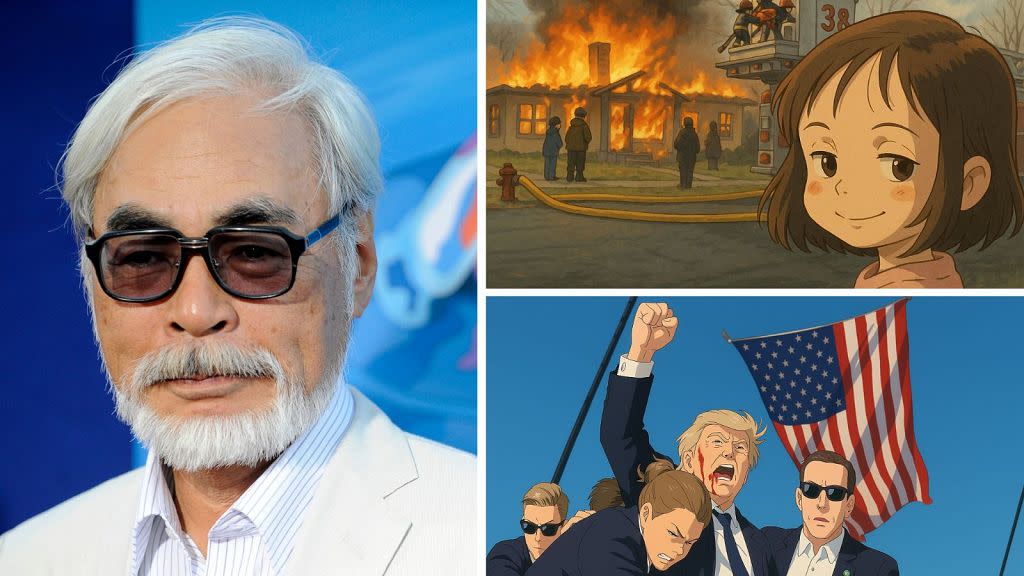International
The Parliament of Venezuela approves a law that provides for the regulation of NGOs by judicial means

The National Assembly (AN, Parliament) of Venezuela, controlled by Chavismo, unanimously approved on Tuesday, the Law of Supervision, Regularization, Action and Financing of NGOs and Social Organizations that provides for the judicial dissolution of these groups that violate the provisions established in the regulations.
During the session, the Legislature agreed to include in the text, at the request of the Chavista deputy Diosdado Cabello, that NGOs be prohibited from receiving contributions for the financing of “terrorism” because, he assured, there are organizations that receive funds and then sponsor “guarimbas” (violent protests).
“These NGOs receive funds and we see them financing guarimbas, financing acts of terrorism in the national territory and this would serve to put a stop to that possibility,” the legislator explained.
NGOs, according to the new law, are prohibited from receiving economic contributions destined for political organizations or making economic contributions to such formations, as well as promoting “fascism, intolerance or hatred.”
Likewise, it establishes as grounds for the dissolution of these associations the non-compliance with these prohibitions, declared by judicial decision, as well as the non-payment of any fine imposed “in accordance with this law, once the available judicial remedies have been exhausted.”
The text indicates that the courts of first instance in civil matters will be competent to agree on the “dissolution of a non-profit social organization,” to which “the right to defense and due process must be guaranteed.”
NGOs must, by law, notify “the financing or donations” they receive, in order to “ensure the legality of the funds,” in addition to declaring the “donations received with full identification of the donors, indicating whether they are national or foreign, accidental or permanent.”
On the other hand, according to the text, the Executive is responsible for “following and controlling compliance” with the “duties and prohibitions” established in the new legislation, for which, among other measures, it will implement and evaluate mechanisms that serve these purposes.
The NA resumed the discussion of this law three months after its last debate on it, last May, despite the warnings of numerous NGOs, which warn of a “suppression of civic space and the right of association.”
On Tuesday, the UN High Commissioner for Human Rights, Volker Türk, asked the Government of Venezuela to reject this legislative text, as well as that of a bill to regulate social networks, due to the negative impact they would have on human rights and democracy in general.
International
Deportation flight lands in Venezuela; government denies criminal gang links

A flight carrying 175 Venezuelan migrants deported from the United States arrived in Caracas on Sunday. This marks the third group to return since repatriation flights resumed a week ago, and among them is an alleged member of a criminal organization, according to Venezuelan authorities.
Unlike previous flights operated by the Venezuelan state airline Conviasa, this time, an aircraft from the U.S. airline Eastern landed at Maiquetía Airport, on the outskirts of Caracas, shortly after 2:00 p.m. with the deportees.
Interior Minister Diosdado Cabello, who welcomed the returnees at the airport, stated that the 175 repatriated individuals were coming back “after being subjected, like all Venezuelans, to persecution” and dismissed claims that they belonged to the criminal organization El Tren de Aragua.
However, Cabello confirmed that “for the first time in these flights we have been carrying out, someone of significance wanted by Venezuelan justice has arrived, and he is not from El Tren de Aragua.” Instead, he belongs to a gang operating in the state of Trujillo. The minister did not disclose the individual’s identity or provide details on where he would be taken.
International
Son of journalist José Rubén Zamora condemns father’s return to prison as “illegal”

The son of renowned journalist José Rubén Zamora Marroquín, José Carlos Zamora, has denounced as “illegal” the court order that sent his father back to a Guatemalan prison on March 3, after already spending 819 days behind barsover a highly irregular money laundering case.
“My father’s return to prison was based on an arbitrary and illegal ruling. It is also alarming that the judge who had granted him house arrest received threats,” José Carlos Zamora told EFE in an interview on Saturday.
The 67-year-old journalist was sent back to prison inside the Mariscal Zavala military barracks on March 3, when Judge Erick García upheld a Court of Appeals ruling that overturned the house arrest granted to him in October. Zamora had already spent 819 days in prison over an alleged money laundering case.
His son condemned the situation as “unacceptable”, stating that the judge handling the case “cannot do his job in accordance with the law due to threats against his life.”
International
Miyazaki’s style goes viral with AI but at what cost?

This week, you may have noticed that everything—from historical photos and classic movie scenes to internet memes and recent political moments—has been reimagined on social media as Studio Ghibli-style portraits. The trend quickly went viral thanks to ChatGPT and the latest update of OpenAI’s chatbot, released on Tuesday, March 25.
The newest addition to GPT-4o has allowed users to replicate the distinctive artistic style of the legendary Japanese filmmaker and Studio Ghibli co-founder Hayao Miyazaki (My Neighbor Totoro, Spirited Away). “Today is a great day on the internet,” one user declared while sharing popular memes in Ghibli format.
While the trend has captivated users worldwide, it has also highlighted ethical concerns about AI tools trained on copyrighted creative works—and what this means for the livelihoods of human artists.
Not that this concerns OpenAI, the company behind ChatGPT, which has actively encouraged the “Ghiblification”experiments. Its CEO, Sam Altman, even changed his profile picture on the social media platform X to a Ghibli-style portrait.
Miyazaki, now 84 years old, is known for his hand-drawn animation approach and whimsical storytelling. He has long expressed skepticism about AI’s role in animation. His past remarks on AI-generated animation have resurfaced and gone viral again, particularly when he once said he was “utterly disgusted” by an AI demonstration.
-

 International4 days ago
International4 days agoFederal court blocks Trump’s use of Enemy Alien Act for deportations
-

 Central America4 days ago
Central America4 days agoHonduran group in U.S. pushes for voter registration to prevent election fraud
-

 Central America4 days ago
Central America4 days agoKristi Noem in Latin America: Talks with Bukele on expulsions and security policies
-

 International4 days ago
International4 days agoEcuador oil spill worsens as containment dam collapses
-

 Central America3 days ago
Central America3 days agoNicaragua denounces Costa Rica’s position in SICA as aligned with foreign interests
-

 Central America3 days ago
Central America3 days agoNicaragua’s new judicial law consolidates power in Ortega and Murillo’s hands
-

 Central America3 days ago
Central America3 days agoPanama’s president declares Darién gap ‘closed’ amid sharp drop in migrant flow
-

 International3 days ago
International3 days agoMarco Rubio warns Venezuela against military action against Guyana
-

 International1 day ago
International1 day agoSon of journalist José Rubén Zamora condemns father’s return to prison as “illegal”
-

 International1 day ago
International1 day agoMiyazaki’s style goes viral with AI but at what cost?
-

 Central America1 hour ago
Central America1 hour agoPanama police clarifies that Interpol alert for Martinelli is still pending
-

 International1 hour ago
International1 hour agoDeportation flight lands in Venezuela; government denies criminal gang links
-
Central America2 days ago
Nicaragua revokes legal status of 10 more NGOs, bringing total to over 5,600















